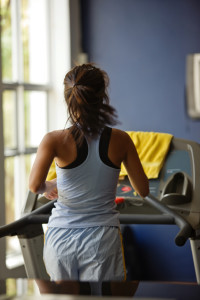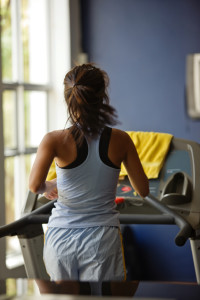By Gregory Curfman, MD
Editor in Chief, Harvard Health Publications

BOSTON–Regular exercise is one of the cornerstones for maintaining good health. Regular physical activity helps to prevent heart and blood vessel disease, diabetes, dementia, and even some types of cancer. But while the health benefits of exercise are indisputable, there is still a question about exactly how much exercise is needed to promote optimal health.
According to a recent article in The Journal of the American Medical Association by Thijs Eijsvogels and Paul Thompson, the answer may be “not as much as you might think.”
Every little bit of exercise counts
Drs. Eijsvogels and Thompson reviewed several published studies and concluded that as little as 15 minutes a day of moderate-intensity exercise — and only 8 minutes a day of vigorous-intensity exercise — reduced the risk of death. They referred to this as the “lowest effective dose.” This means that even a small amount of exercise may have substantial health benefits compared with being sedentary, and even people who are “too busy to exercise” can find this amount of time.

Exercising beyond the lowest effective dose had further health benefits. For every additional 15 minutes of moderate-intensity exercise, there was a further 4% reduction in the risk of death. The greatest benefit was seen in people who exercised for an average of 63 to 88 minutes a day, and vigorous-intensity exercise was better than moderate-intensity exercise.
Another new study, published in JAMA Internal Medicine, found that young adults who were physically fit (as measured by endurance testing on a treadmill) had a lower risk of developing heart and blood vessel disease over the next three decades. For each additional minute a person was able to stay on the treadmill, there was a 15% reduction in the risk of death and a 12% reduction in the risk of heart and blood vessel disease.
Putting the “lowest effective dose” of exercise to work for you
Taken together, these two new studies further underscore a single conclusion: you don’t have to be a triathlete to achieve health benefits from physical activity. Even small amounts of exercise and modest increases in fitness can make a clear difference, and some exercise is always better than no exercise.
If you need to increase your level of physical activity, it may be a good idea to start by counting your daily steps using a Fitbit or similar device (there are also free apps for your phone or tablet that can count your steps). Gradually increase your daily goal, and before you know it, you will be on track towards having a longer and healthier life.
(This article is reprinted here from permission with Harvard Gazette.)














